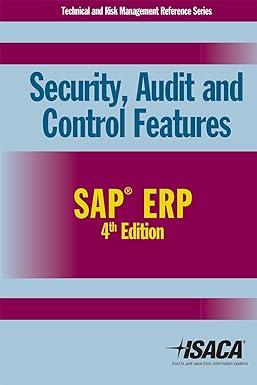Question
Article (Reuters) - Macys Inc is suing Martha Stewart Living Omnimedia Inc, accusing the company of breach of contract for entering into an agreement to
Article
(Reuters) - Macys Inc is suing Martha Stewart Living Omnimedia Inc, accusing the company of breach of contract for entering into an agreement to sell certain products at stores run by its rival J.C. Penney Co Inc.
Martha Stewart attends the Chado Ralph Rucci Spring 2010 collection during New York Fashion Week, September 12, 2009.
The operator of Macys department stores says Martha Stewart Living granted it the exclusive right to manufacture and sell certain products under a 2006 agreement, according to a New York State Supreme Court filing on Monday.
Yet in December, J.C. Penney took a large stake in Martha Stewart Living and announced plans to open shops within its stores, starting in 2013, that sell Martha Stewart-branded goods.
Macys is seeking a preliminary injunction stopping Martha Stewart from violating the contract. It also is seeking an order sealing the lawsuit and motion, saying it is prohibited from disclosing certain information.
The court filing does not detail the products in question.
But Macys said in a statement that it had renewed its agreement to exclusively sell Martha Stewart-branded product in categories such as cookware, kitchen utensils, bed and bath for another five years, meaning until January 2018.
Macys said it went to court to enforce the agreement signed by Martha Stewart Living in 2006 in which the right for Macys to sell product exclusively in these categories was clearly outlined.
Martha Stewart Living said it typically does not comment on legal matters. However, a company statement pointed out Macys intent to extend its commercial agreement with MSLO to feature and promote the Martha Stewart Collection its #1 home brand in Macys stores.
J.C. Penney did not immediately return a call for comment.
The case is Macys Inc. v. Martha Stewart Living Omnimedia, Inc., 650197/2012, New York State Supreme Court (Manhattan).
Pertinent facts:
The record reveals the following pertinent facts:
In 2006, Macy's and MSLO entered into a licensing agreement granting Macy's certain exclusive rights with respect to products designed by MSLO. These products were defined in the agreement as "Exclusive Product Categories" and included bedding, bathware, housewares and cookware. In conjunction with Macy's, MSLO would design goods in those categories, which were branded with the MSLO mark. Macy's would manufacture the goods and sell them in Macy's stores.
The agreement further provided that Macy's would be the exclusive outlet for sales of these items and that MSLO would not, without Macy's consent, enter into any new agreement or extend any existing agreement "with any department store or manufacturer or other retailer of department store merchandise that promotes the sale of any items" in Macy's Exclusive Product
Categories that are branded with a Martha Stewart Mark. The agreement further provided that if MSLO ultimately contracted, with Macy's approval, tacit or otherwise, to sell goods in the Exclusive Product Categories through other outlets, such goods were to be manufactured solely by Macy's and could not be sold through a downscale retailer. The agreement was subject to several limitations, the key one being MSLO's reservation of the right to open its own retail stores.
These stores were defined as "retail store[s] branded with Martha Stewart Marks or Stewart Property that [are] owned or operated by MSLO or an Affiliate of MSLO or that otherwise prominently feature Martha Stewart Marks or Stewart Property." Even with respect to those MSLO stores, however, only Macy's could manufacture and sell products in its Exclusive Product Categories at Macy's cost plus 20%.
This arrangement was designed to prevent MSLO stores from undercutting Macy's prices on those goods. The contract had a five-year term, with Macy's having a unilateral right to renew for a maximum of three subsequent five-year terms. The initial contract was set to expire in 2013 and Macy's timely notified MSLO of its intent to renew in 2012. The subject is Business Law.
1. What are the terms of the contract?
2. What was MSLO allowed to do and what did they do?
3. This case was settled, however; how do you think the court would have decided?
4. Pose a question as well.
Step by Step Solution
There are 3 Steps involved in it
Step: 1

Get Instant Access to Expert-Tailored Solutions
See step-by-step solutions with expert insights and AI powered tools for academic success
Step: 2

Step: 3

Ace Your Homework with AI
Get the answers you need in no time with our AI-driven, step-by-step assistance
Get Started


